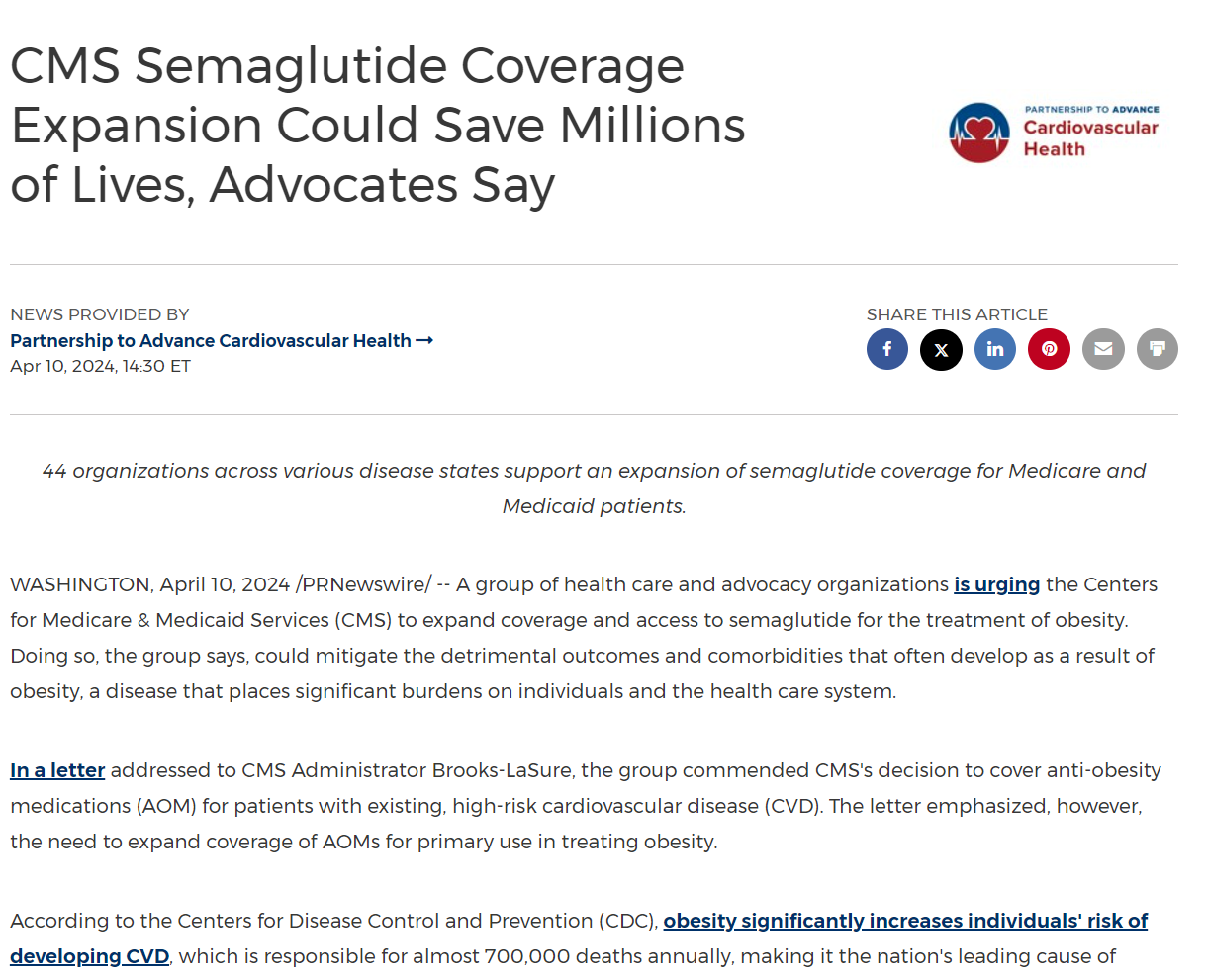Washington, DC-- "The Partnership to Advance Cardiovascular Health applauds the Centers for Medicare and Medicaid Services' proposal to cover obesity treatments under Medicare and Medicaid.
CMS Semaglutide Coverage Expansion Could Save Millions of Lives, Advocates Say
A group of health care and advocacy organizations is urging the Centers for Medicare & Medicaid Services (CMS) to expand coverage and access to semaglutide for the treatment of obesity. Doing so, the group says, could mitigate the detrimental outcomes and comorbidities that often develop as a result of obesity, a disease that places significant burdens on individuals and the health care system.
Presentation: Peripheral Artery Disease Video
Welcome
How Prior Authorization Impacts Access to Care
Expand access to healthcare by limiting third-party interference
As lawmakers re-evaluate avenues to successful healthcare reform, they must not overlook the urgent need to protect the doctor-patient relationship. Expanded access to healthcare is meaningless unless lawmakers address third-party disruption in potentially life-saving medical treatments.
Read more at The Hill.
ACP: Stop Saddling Docs With Administrative Tasks
It's time for all those involved in the healthcare industry to reevaluate and reduce the administrative task burden placed on clinicians, according to policy recommendations from the American College of Physicians (ACP).
Read more at MedPage Today.
PCSK9 Rejections: It's Not Just You
Just how hard is it to get insurance to cover PCSK9 inhibitor prescriptions? Two large claims databases showed about 80% of scripts were rejected on the first attempt.
In one analysis involving 44,234 new prescriptions for PCSK9 inhibitors in the QuintilesIMS databases from July 29, 2015, through July 15, 2016, just 17% of of the scripts were approved on the first attempt. With further paperwork, another 26% got approved, for an ultimate approval rate of 43%.
Read more at MedPage Today.





